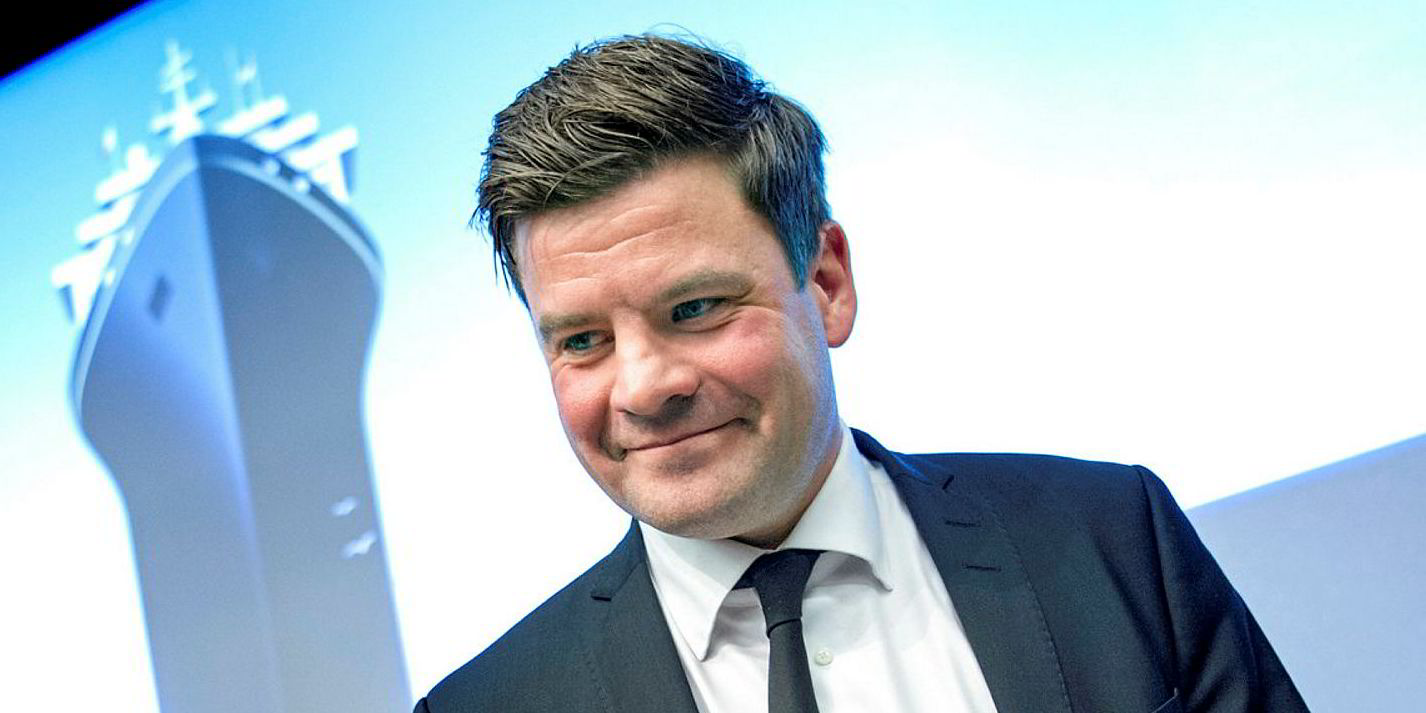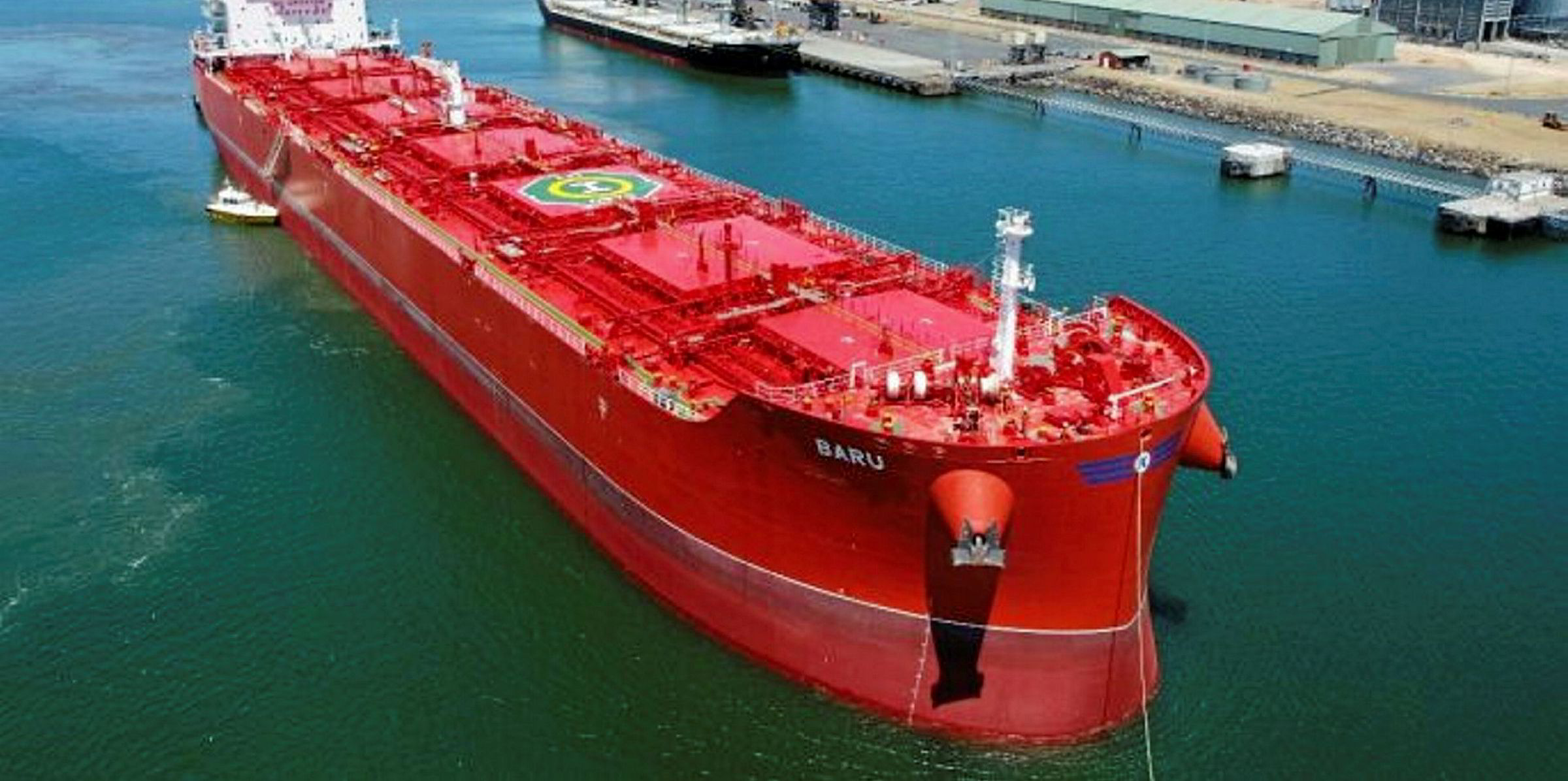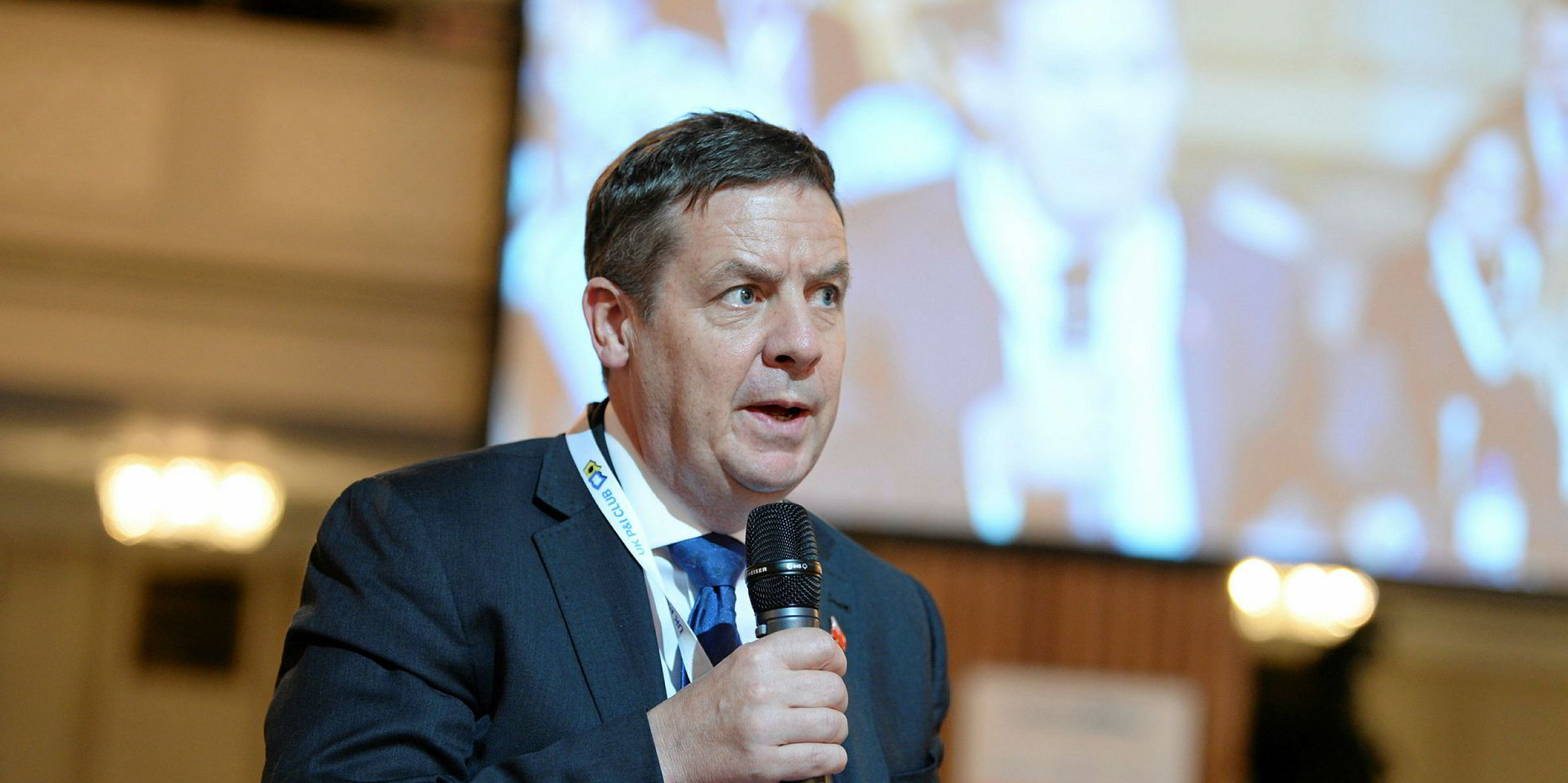Klaveness chief executive Lasse Kristoffersen is urging the shipping industry to get funding schemes back on the drawing board to achieve its carbon reduction targets.
Kristoffersen, who also is president of the Norwegian Shipowners’ Association and vice president of the International Chamber of Shipping, said such schemes could provide the “final bridge” that would fund the technology development required to help the industry to cross over to an age of carbon-free shipping.
His comments come as the IMO appears to have put so-called market-based mechanisms on the backburner while it attempts to come up with short-term technical solutions to reducing carbon emissions.
“The shipping industry remains almost totally dependent on hydrocarbons, it is high energy and it is cheap," Kristoffersen said. "The only issue is that it contains carbon and so we must put a price on that carbon.”
Based on the current European Union quota price of $20 per tonne for carbon emissions, he said shipping has the potential to generate a global fund in the region of $30bn to $40bn.
He added that shipowners should not have to bear the additional charges, because shipping’s business model is built around passing the cost of fuel onto its customers.
Kristoffersen said the global fund could be used to finance the research and technology required to help shipping reduce its carbon emissions in line with the Paris Agreement on climate change.
The scheme could work along similar lines to Norway’s NOx fund system, which currently operates in the country’s coastal shipping to help owners and operators cope with the additional costs of meeting local emissions reduction targets.
'Window of opportunity'
“We have a window of opportunity to design our own mechanism and push the cost on to those who should pay: the owners of the cargo and eventually the consumer,” he said.
“Somebody will have to pick up the bill if shipping does not.”
But the additional costs would also incentivise shipowners to switch over to greener or carbon-free fuels.
However, to get the scheme off the ground, he said an initial low carbon price could be introduced.
“Even if it is just $1 per tonne, it would still create a significant fund,” he said.
He added that the common but differentiated principle of the United Nations Framework Convention on Climate Change, which excludes developing countries from carbon-reduction schemes, could not be applied in shipping.
“In shipping, that principle would not work because the business is global,” he said.
Kristoffersen also said shipping has shown it is more than capable of coping with additional fuel costs. Over the past decade, he said shipowners have coped with fuel-price swings of between $150 per tonne and $730 per tonne of fuel.
He also cautioned that, if anything, the IMO targets are likely to get tougher over the coming years in response to society's growing environmental concerns.
He said that while banks are showing more interest in green funding, they will not be able to provide the levels of funding for the research and development required to achieve the IMO targets.
Kristoffersen is to expand on his views at the upcoming International Chamber of Shipping conference during London International Shipping Week.
Read all our London International Shipping Week coverage at tinyurl.com/twlisw2019.





